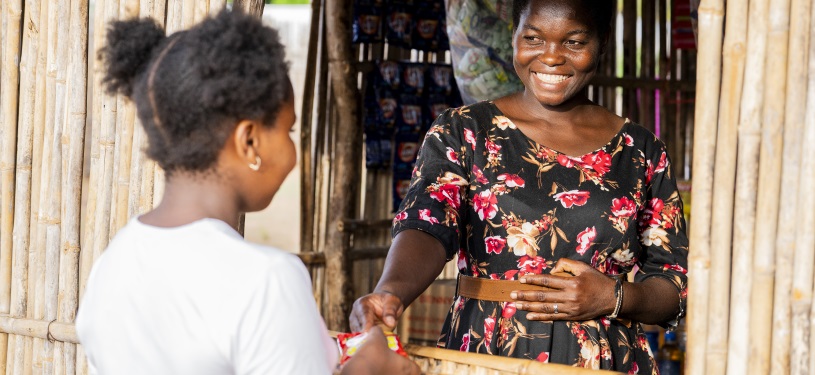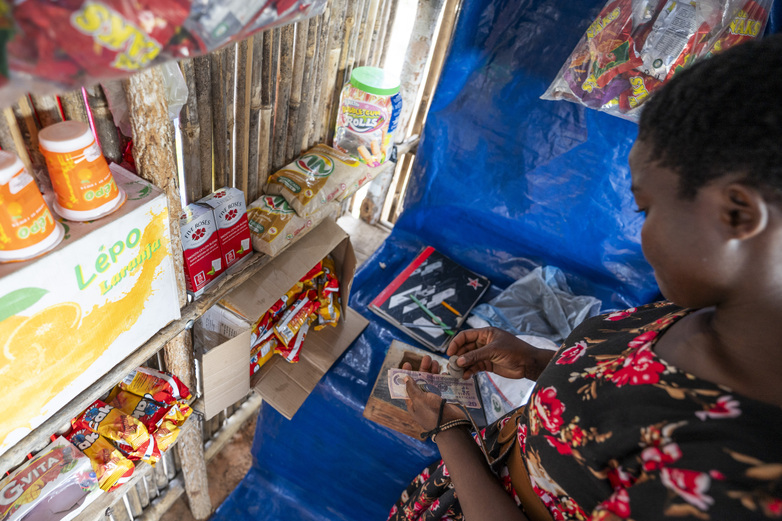
19.06.2024
Displaced people in Mozambique: new opportunities, new optimism
It’s World Refugee Day: Many people in Mozambique are displaced within their own country. The path to building a new life starts with a secure income.
Around 30,000 refugees and asylum seekers and more than 850,000 internally displaced people live in Mozambique. Bertina is one of them. In 2021, she was forced to leave her hometown of Palma in the north of the country after violent attacks by armed groups. The experience was traumatic: Bertina lost a family member, and her sister and niece were abducted.
Bertina now lives with her family in the Pemba region. What refugees especially lack there are employment opportunities. This is a major challenge for the host communities because work is not only fundamental to starting a new life, but also crucial for integration.
But Bertina has succeeded in finding a job. She now runs a shop selling foodstuffs such as rice, coffee, sugar and juice and has up to 50 customers a day, including many regulars. At the end of each month, she has enough money left over to put something aside for her children’s education.
 © UNHCR, Lara Bommers
© UNHCR, Lara BommersGaining a foothold economically and socially
Entrepreneurship training as part of the Nexus Norte project helped Bertina to set up her business. The project is being implemented by the Deutsche Gesellschaft für Internationale Zusammenarbeit (GIZ) GmbH and the UN Refugee Agency (UNHCR) on behalf of the German Federal Ministry for Economic Cooperation and Development (BMZ).
The project aims to improve living conditions for internally displaced people, refugees and members of host communities in the northern provinces of Mozambique. This is being achieved both through acute aid and also by developing solutions that help long-term integration and promote peace, such as programmes enabling refugees to enter the labour market.
Although Bertina still misses her home, she is happy to have the chance to rebuild her life. ‘I’d like to go back home to Palma, but my heart just can’t cope with the trauma we experienced there.’ For her and many others uprooted by violence, working is a way of finding their way back to life.